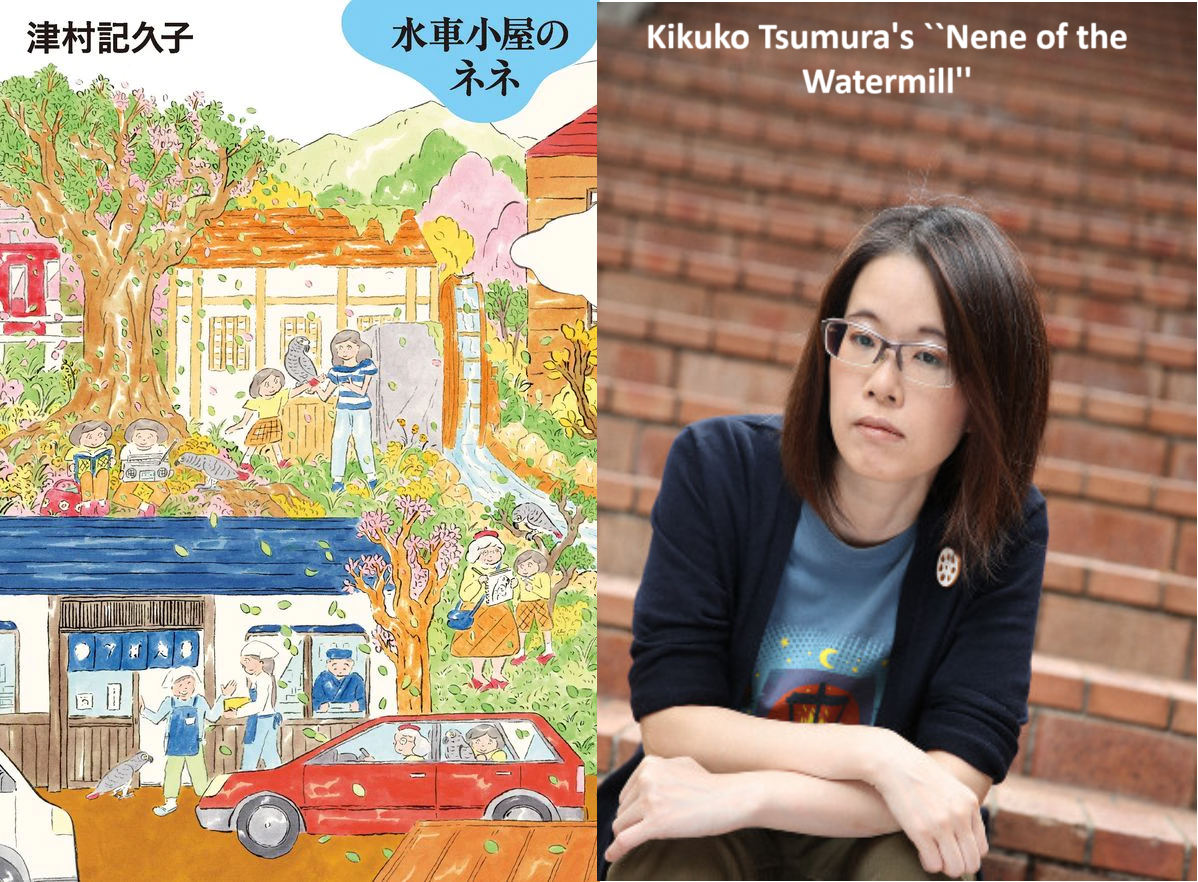Kikuko Tsumura’s “Watermill no Nene”
Kikuko Tsumura’s “Watermill no Nene” (Mainichi Shimbun Publishing), which was serialized in the Mainichi Shimbun, was selected as second place in the 2024 Bookstore Award (sponsored by the award executive committee), which is determined by votes from booksellers nationwide. Ta. In an interview with the Mainichi Shimbun, Tsumura said, “I never expected to come in second place.I thought the Bookstore Award itself was unrelated, so being nominated was a fond memory.” Told.
Nene of the Watermill: A Family of Three Sisters
“Nene of the Watermill” is a story about sisters who move to a mountain town rich in nature in order to escape from parents who neglect their children. 18-year-old Risa begins working at a soba restaurant in town, and along with her 8-year-old sister Ritsu, ends up taking care of the talkative Youmu Nene, who lives in the soba restaurant’s watermill. The 40 years of the sisters growing up while interacting with Nene and the people around them are depicted through fixed-point observation every 10 years.

Various people appear in the story, including a couple who run a soba shop, Ritsu’s friends, and their homeroom teacher, who gently lend a helping hand to the sisters depending on the situation. At the end of the series in July 2022, Tsumura said, “They are very good people, but I don’t think they are the kind of people who you would say changed your life after meeting them. “I took care to portray him as a down-to-earth person who can offer goodwill to others,” he wrote in an article for the Mainichi Shimbun. Regarding the reason for depicting good intentions within the “realistic range”: “I didn’t want to write a work where the reader would think that they would not be able to receive such benefits.I wanted to make the characters special.” There wasn’t,” he explains.
His small, not-special kindness caused a stir. Booksellers said, “What a wonderful world, where small but unwavering acts of kindness revolve around us” and “Someone’s kindness connects us gently like shiritori.” 2024” (from bookseller recommendations).
Tsumura smiles and says, “At the Bookstore Award presentation, I received a lot of POPs (from bookstore staff).All of them were good ones that reflected the real feelings of the people who read them.” Even during the series, he received messages from newspaper readers in the form of postcards and letters. “Some people said, “I cut out (the novel section) every day,” which made me really happy.”

Now, nearly two years after the series ended, Tsumura looks back and says, “I’m glad I wrote it.” When asked what message she would like to give to those who will meet “Nene of the Watermill,” she replied: “I took care to write a novel that would not inhibit the reader.The people who appear in this novel will not deny you.After reading it, I thought that interacting with people is not such a bad thing.” If you can give it to me.”
And then he continued like this. “If you interact with a lot of people, you’ll end up with at least one good person.Don’t give up after just 2 or 3 people, try interacting with as many people as you can.Someone might be a good fit, and they’ll be kind to you.” Maybe. First of all, I would like you to become friends with this book.” [Yuka Matsubara]
“Nene of the Watermill” Kikuko Tsumura’s gives a lecture “Looking for hard work”
A lecture by Kikuko Tsumura, the author who won the Junichiro Tanizaki Prize for her book “Nene of the Watermill” (Mainichi Shimbun Publishing) published this spring, was held at the City Central Library in her hometown of Osaka. The format was to answer questions submitted in advance by approximately 300 participants. The topics covered a wide range of topics, from anecdotes related to her work to her writing style.

The work was serialized in the Mainichi Shimbun for one year from July 2021. A story of sisters who escape from their selfish parents and start over in a mountain town. 18-year-old Risa leaves home with 8-year-old Ritsu and starts working at a soba restaurant with a watermill. There, the 40 years of their lives are woven together as they live their lives while supporting each other and being watched over by Nene, a talking parrot bird they meet, and the people around them.
Regarding the motifs of the watermill and the gray parrot, Tsumura said that both were “things that I wanted.” “I’ll be writing a novel for a year, so I wrote about things I like so I don’t get bored.” While writing the book, she mentioned that she was unable to do any interviews due to the coronavirus pandemic, and reflected, “It was also a job where I was trying to write as much as I could from my own memory.”





